danica o. kus photographs belgium’s Gare de Mons
The Gare de Mons has opened in Belgium, marking the culmination of nearly two decades of design and construction led by Santiago Calatrava. Located near the French border, the multi-modal station connects local and international train lines while uniting the city’s historic center to the south with the residential area to the north. The project represents a major infrastructural and civic investment for Mons, creating a symbolic and physical bridge across previously divided districts.
From the street, the building’s sweeping white form commands attention through its precision and scale. A vast glass canopy extends outward in a continuous curve, shading the grand staircase and escalators that rise toward the main concourse. The structure’s rhythm of ribs and light evokes Calatrava’s consistent dialogue between architecture and engineering that’s rhythmic and expressive.
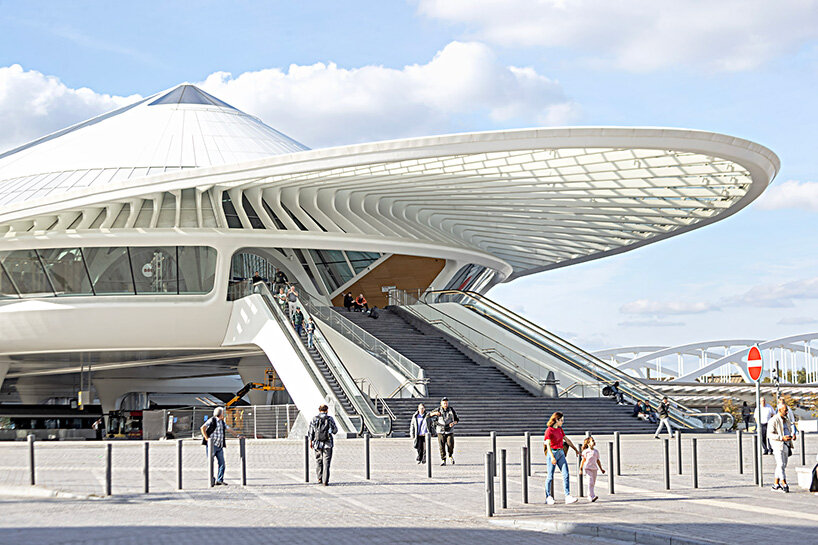
images © Danica O. Kus
Santiago Calatrava’s luminous station
Inside Santiago Calatrava’s Gare de Mons, the Galerie de la Reine serves as the station’s luminous core. The hall is framed by a sequence of branching supports in steel and concrete, and channels natural light across its polished floor and translucent ceiling panels. The architect‘s geometry produces a space that feels at once weightless and orderly, encouraging the steady flow of commuters while maintaining visual calm.
Architectural photographer Danica O. Kus captures the building’s tonal precision — the way daylight filters through the roof lattice, reflecting across the concourse and accentuating the structural pattern. Her images highlight the clarity of construction and the measured transitions between glass, steel, and timber accents along the interior frame.
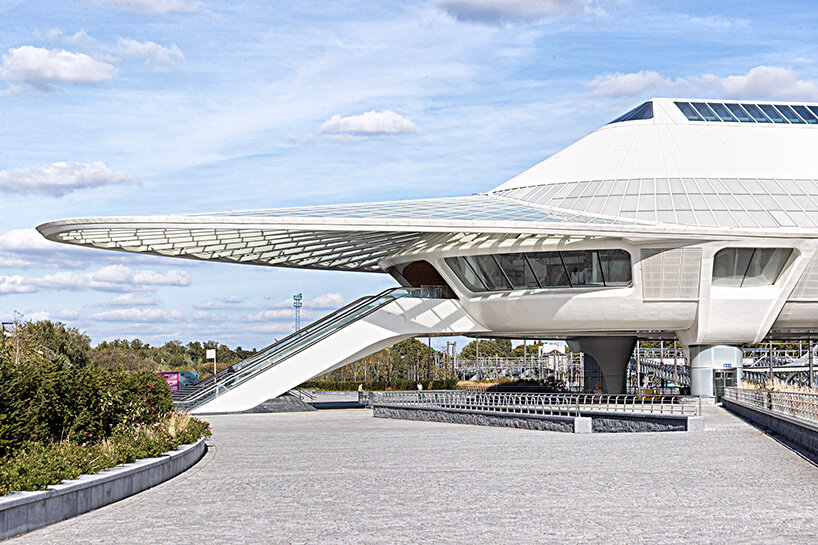
Gare de Mons has opened in Belgium designed by architect Santiago Calatrava
an expressive structure for fluid movement
Beyond its sculptural form by Santiago Calatrava, Gare de Mons establishes a civic continuity that had long been missing in the city’s urban fabric. The raised gallery spans the tracks, linking the two sides of Mons with generous pedestrian access. To the south, at Place Léopold, Calatrava integrated a bus terminal and underground parking for approximately 500 vehicles. To the north, more technical facilities and parking spaces connect to the new urban plaza at Place des Congrès.
The design embraces infrastructure as an urban catalyst — an approach consistent with Calatrava’s broader body of work. The architect creates a sense of progression that is both spatial and social. For Mons, the station becomes an symbol of renewal, and serves as a gathering of people as much as for trains bound for Brussels, Paris, and beyond.
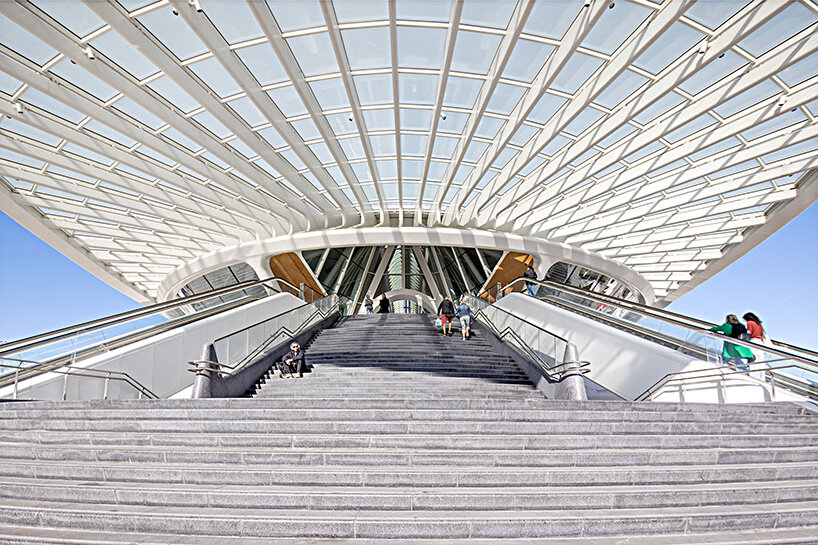
a sweeping glass canopy defines the building’s entrance and public presence
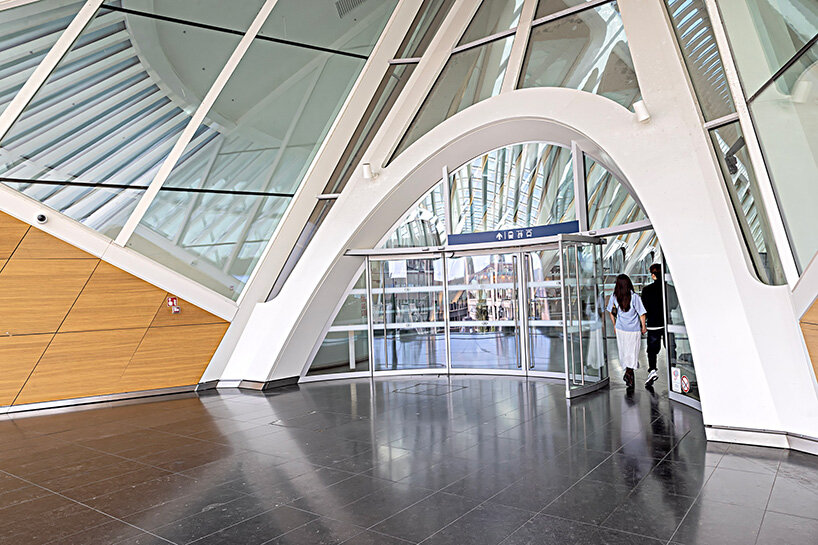
the new station connects the historic city center with the residential north of Mons
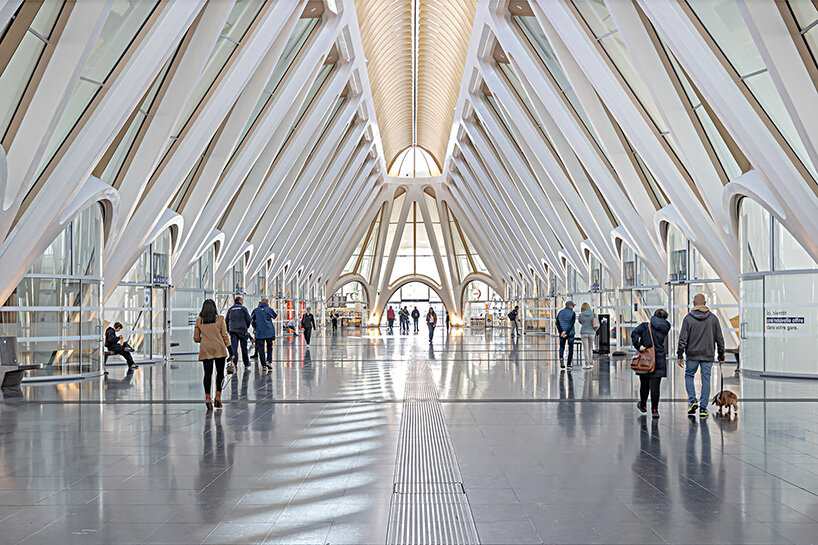
Calatrava’s rhythmic structural ribs frame movement and light throughout the concourse

